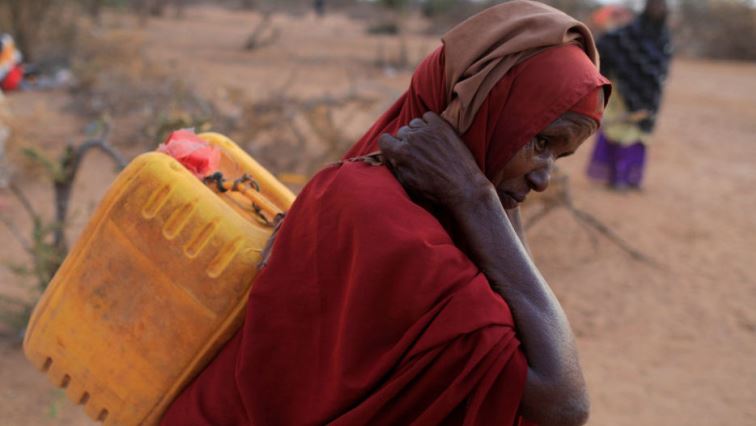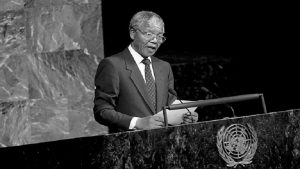Sweden has convened only the third Security Council meeting on the subject of climate change with calls from several quarters for the issue to remain as a firm agenda item of the Council.
The body is responsible for the maintenance of international peace and security with the United Nations and others arguing that shifts in climate patterns, often as a result of man-made actions, will become the most potent driver of existing conflicts and future wars in the world.
After a recent visit to the Lake Chad Basin – a region most affected by both climate change and conflict – a message from the Deputy UN Secretary General Amina Mohammed that climate change is inextricably linked to some of the most pressing security challenges of our time.
“The Basin is experiencing a crisis brought on by a combination of political, socio-economic, humanitarian and environmental factors. The drastic shrinking of Lake Chad by more than 90% since the 1960s has led to environmental degradation, socio-economic marginalization and insecurity affecting 40 million people. Exacerbated competition over scant resources and the vicious cycle of risk and vulnerability have decreased the resilience of populations to cope with humanitarian crises.”
A region where declining economic activity and agricultural loss is leading to a lack of employment opportunities and increased recruitment as a result for groups such as Boko Haram.
“We must understand climate change as one issue in a web of factors that can lead to conflict. Within this web, climate change acts as a threat multiplier, applying additional stress on prevailing political, social and economic pressure points. As the Executive Secretary of the Lake Chad Basin Commission said to me during our visit, “At the end of the day what was the origin of this conflict? The disappearance of the Lake was a key factor””
Sweden’s Foreign Minister Margot Wallstrom – in her capacity as President of the Council for the month of July – urged her colleagues to catch up to realities on the ground.
“To address the conflicts of today and the prevent the conflicts of tomorrow, we must understand and respond to the threats that climate change presents to our security. We saw it with Boko Haram in the Lake Chad region, you will see conflicts, when the Lake recedes people start to move. We will have conflicts between farmers and herders. Boko Haram will use the unrest that is created to recruit people and this was very clear to us.”
She urged four key points for the Council to consider – first to better understand climate related security risks, to improve the tools of analysis and reporting from the field, to create an institutionalized home on the subject to better coordinate the various agencies dealing with the matter throughout the UN system and to learn from countries like small island states or those facing conflicts that are at the frontline of the effects of climate change.
“This will be the most potent driver of existing conflicts and wars in the world, we will soon see more climate refugees and it will affect all of us, so their destiny is also our destiny.”
Hindou Ibrahim is woman and activist from the nomadic Mbororo community in Chad who explained the challenges faced by her community.
“They do not sit in the offices all day and wait at the end of the months to get salary to feed their families. More than 80% of our communities in Sahel in particular in my region depend on the environment, from agriculture, from fish, from livestock. That’s the daily life they have to go and fight to feed their families. The practical example is because we are nomadic, we have to follow the patterns of water and pasture. With the last decade we are experiencing the climate impact on all our resources. The natural resources are shrinking, of course you’ve already heard about the Lake Chad but there are many other places where water disappear for ever.”
Russia called the convening of the meeting misguided, arguing that it could not accept the link between environmental conservation and threats to peace and security around the world.






